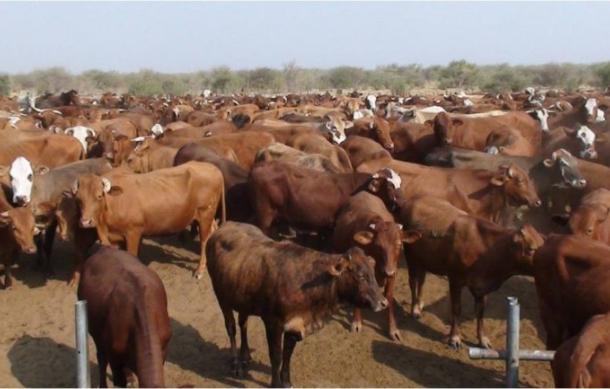
Namibian livestock farmers have been advised to reduce their livestock to avoid losing them to the foreseen dry season of the El Nino phenomenon.
The call was made by two of the country's biggest farmers' unions, the Namibia Agricultural Union (NAU) and the Namibia National Farmers Union (NNFU).
The call for de-stocking comes after the UN's Food and Agricultural Organisation (FAO) released a report forecasting the prevalence of the El Nino phenomenon, expected next month.
This is an adverse weather condition that, when it occurs, results in less or no rainfall being experienced.
"It is true that El Nino is forecast for the 2023–24 season, and a catastrophe can evolve if Namibia receives two below-average rainy seasons. Therefore, we need to plan ahead and make sure that now is the time to assess how much rain we have available for our livestock. If we do not have enough grazing at the moment, we need to sell our livestock as soon as possible while the cattle are still in good condition. If we wait too long, the condition of our livestock is going to deteriorate, and we are going to lose money," said Roelie Venter, Executive Manager at the NAU.
"This is the most important part where stakeholders need to come together so that we can provide things like fodder, and also during the drought you find that in some areas the borehole dries, we need to look to provide alternatives in terms of water provision, but what is important for our farmers, especially livestock farmers, is that we need to destock so that by the time the drought hits, we have at least livestock that we are able to feed," said Kuniberth Shamathe, CEO of the Namibian National Farmers Union.
Venter noted that due to poor rainfall, grazing, as well as crops, are far below average, and this might be catastrophic.
"We further need to be cautious for the upcoming rainy season because we realized that if we have two consecutive drought seasons, a catastrophe can evolve."
The communal farmers' union head wants the full operation of various abattoirs, such as the Katima Abattoir and the Rundu, in order to support the destocking exercise, which should be accompanied by better prices.
He also wants the Mobile Slaughter Unit, currently stationed at Rundu, to be relocated to Opuwo in the Kunene Region to provide a market for farmers in that area.
The NNFU, in partnership with the Namibian Emerging Commercial Farmers, will conduct a rapid assessment study to determine the country's needs in terms of farming and avail this information as promptly as possible.
Namibia National Farmers' Union Acting President Amon Kapi says despite the dry season not having started yet, some parts of Namibia are already in drought.
Kapi is thus requesting farmers to spare all available fodder and crop field residue for animals in order to overcome the looming dry spell while at the same time urging them not to lose hope.





